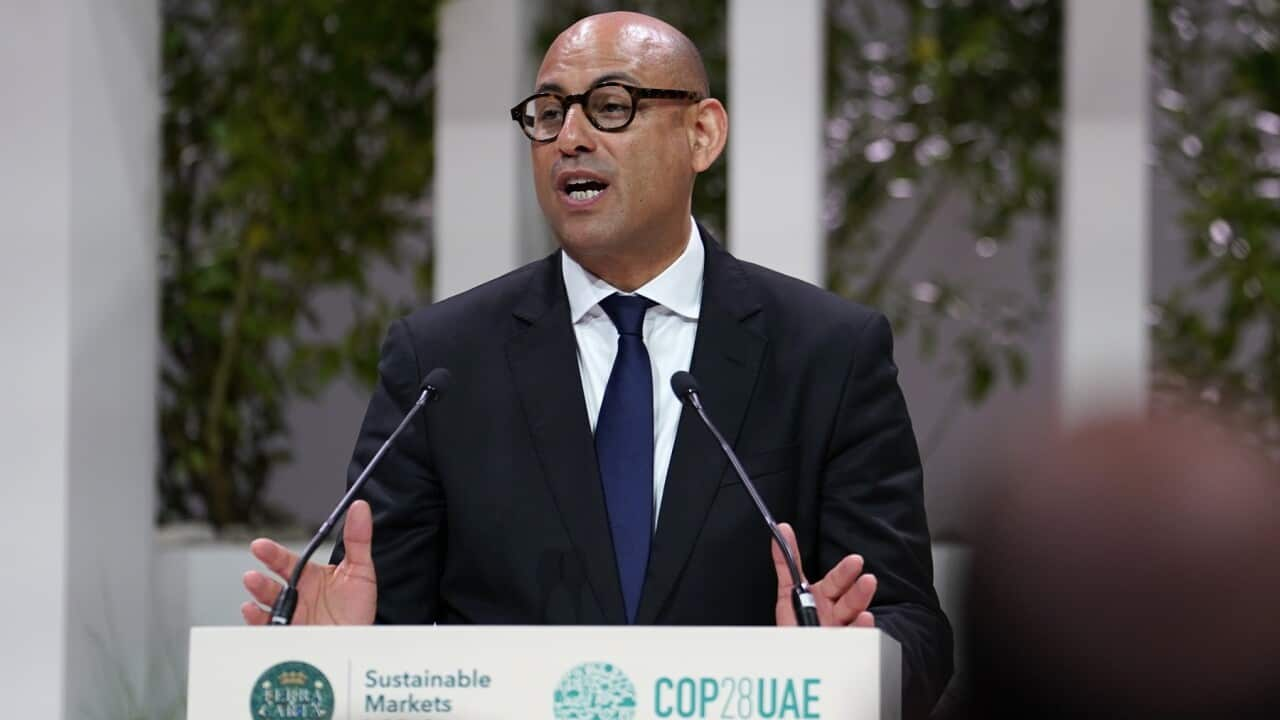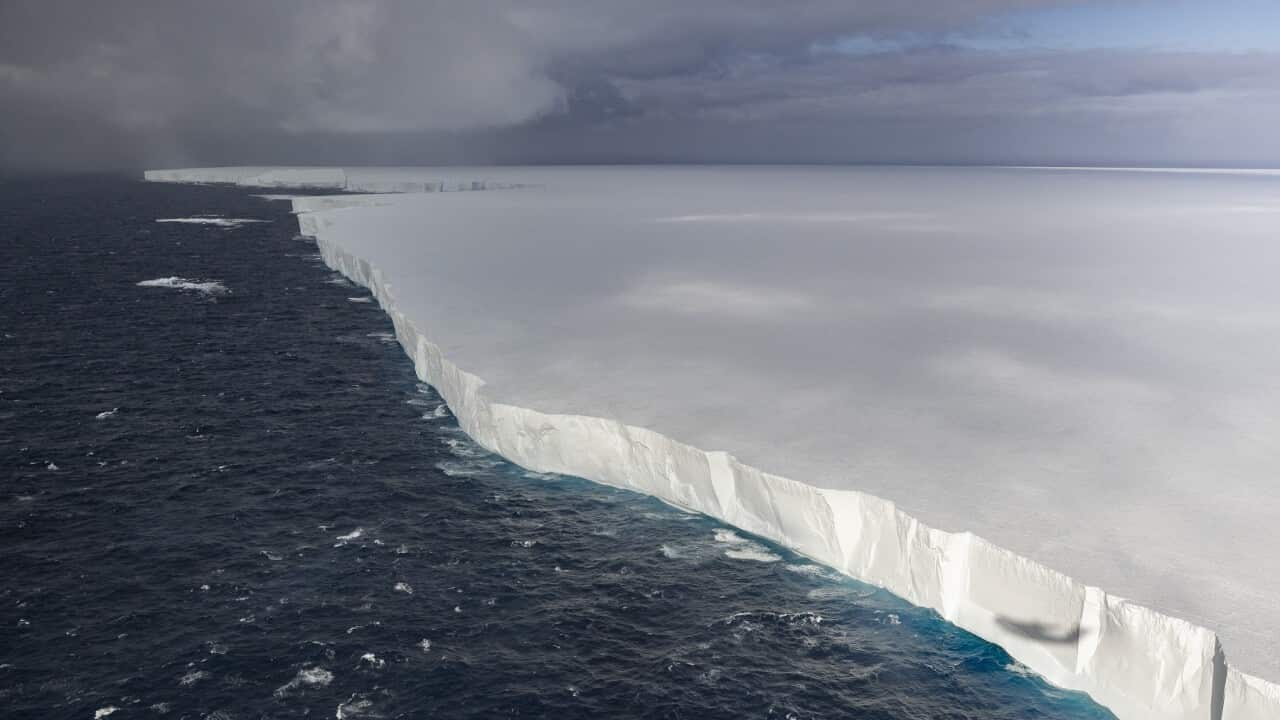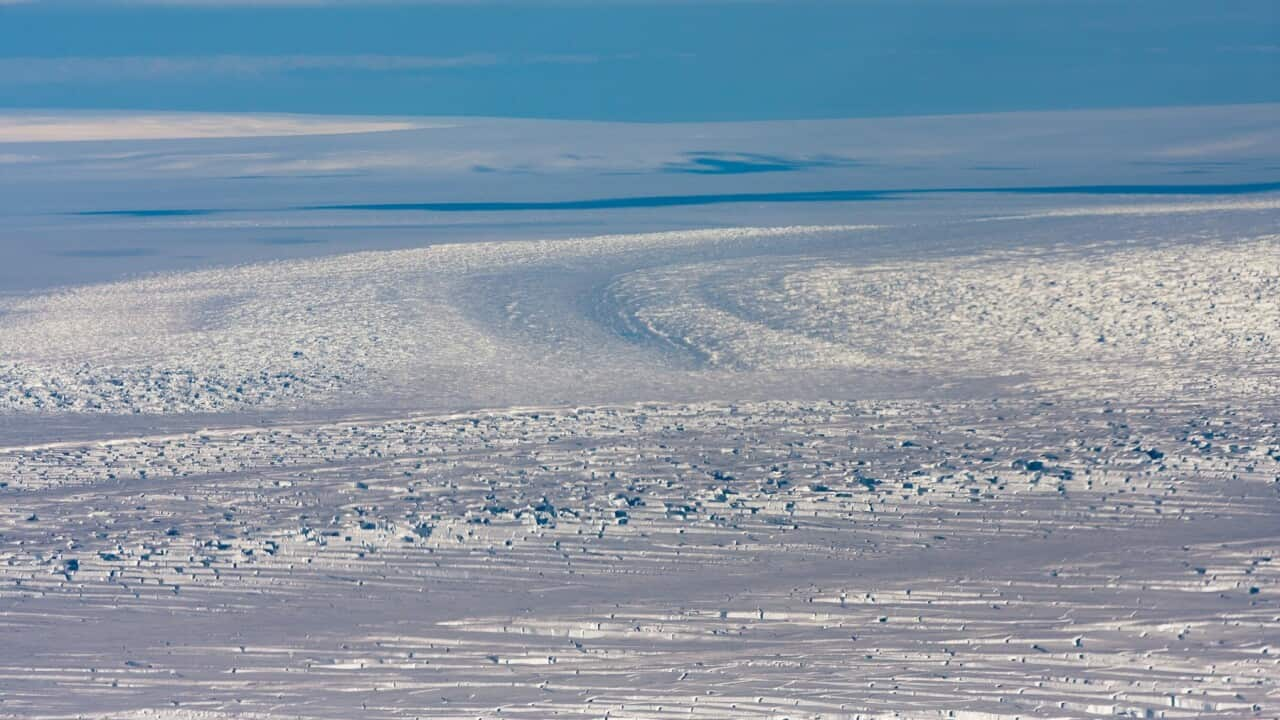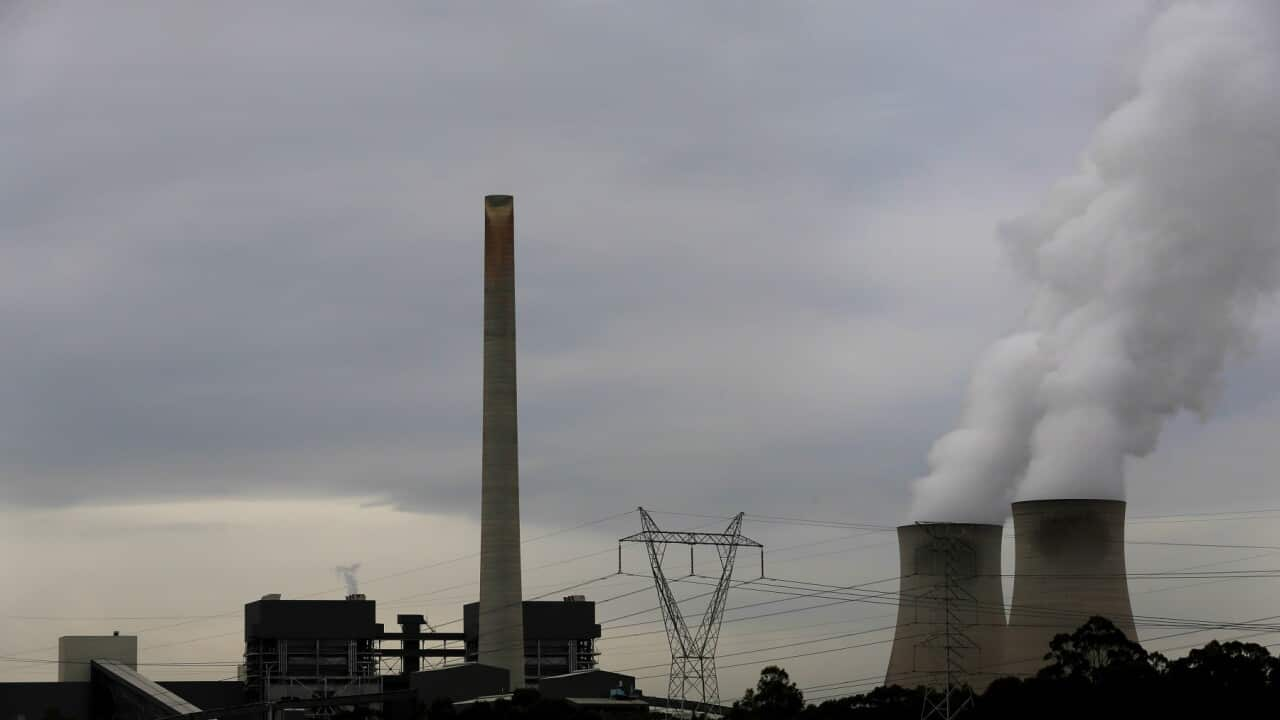TRANSCRIPT
Climate pledges have been a frequent occurrence at the COP28 climate summit in Dubai, with countries promising to implement initiatives to reduce emissions.
But the United Nations climate chief has issued a stern message to climate representatives, saying what's really needed, is money.
Simon Stiell says even after a week of constructive talks, the 198 countries are still far from agreeing on a plan.
"The win on loss and damage here in Dubai gave this COP a spring in its step. But it is just the start. Now, all governments must give their negotiators clear marching orders. We need highest ambition, not point scoring or lowest common denominator politics. Let's be honest, good intentions won't halve emissions this decade or save lives right now. Only serious progress on finance can deliver frontline results. We've said we'll double adaptation finance. Now we have to deliver."
Australia's representative has arrived at the summit, with Climate Change and Energy Minister Chris Bowen under pressure to advocate for Pacific countries.
The key question at this year's climate talks is whether the final agreement will include a decision to phase out oil and gas - but the most fiercely debated aspect of the agreement has been the language which will be used.
United States Climate Envoy John Kerry says the rate of emission reductions must be accelerated dramatically - and has called for a full phase out of fossil fuels.
"We need to emphatically accelerate the pace of emission reductions, that is the only way to keep 1.5 degrees alive, and our choices need to be based on basic mathematics and physics and the evidence that we understand, and the best judgement and the best scientists in the world. We have said consistently that we need to do what we need to do to follow the science. So, you know, the science requires net zero emissions by 2050."
Back home, Mr Bowen has refused to be drawn on whether Australia will support the kind of tough language which many developing countries, and those without oil and gas resources, are demanding from COP28.
More than 80 countries are pushing for a broader pact to phase out all CO2-emitting fossil fuels - but not everyone is supportive, with Russia, Saudi Arabia and China opposing a full phase out.
Polish youth climate activist Dominika Lasota says Russian lobbyists attending the summit have been negotiating against the phase out of all CO2-emitting fossil fuels.
"If we want to disarm dictators like him (Putin), we need to finally move away from oil, coal and gas, completely, pursue just transition, expand renewable energy as never seen before, and through that, achieve a lasting peace, a lasting justice and security. Because this is all about security, there is no security with fossil fuels, there is no peace with fossil fuels. And Putin knows that and he will do everything to still uphold this toxic, destructive system of fossil fuel reliance."
The climate youth activists from Poland and Ukraine have also criticised Russian President Vladimir Putin's recent visit to Abu Dhabi.
They say his trip is an effort to uphold the fossil fuel industry as the United Nations climate summit is underway 140 kilometres away in Dubai.
Meanwhile, there's been an unusual lack of conversation around who will host next year's climate summit, when in previous years, it's usually on the agenda early in the week.
Under United Nations rules, it will be eastern Europe's turn to host the next gathering, but the decision has to be made unanimously by all countries of the region.
COP28 President Sultan Al-Jaber says eastern Europe needs to accelerate and finalise the decision before the end of the summit.
"In accordance with the principle of rotations among regional groups, the president of COP29 would come from the Eastern European states, and for COP30 from the Latin America and Caribbean states. The Latin America and Caribbean states have nominated Brazil to host COP30, I encourage the Eastern European states to accelerate and finalise their consultations on this matter to ensure (a) timely decision. "
Although the eighth day of the summit is a rest day, climate representatives have decided which issues to hand over to their countries ministers for political talks in the coming days.
It's hoped the finer details of an agreement will be discussed and finalised - with the fate of fossil fuels still unknown.













